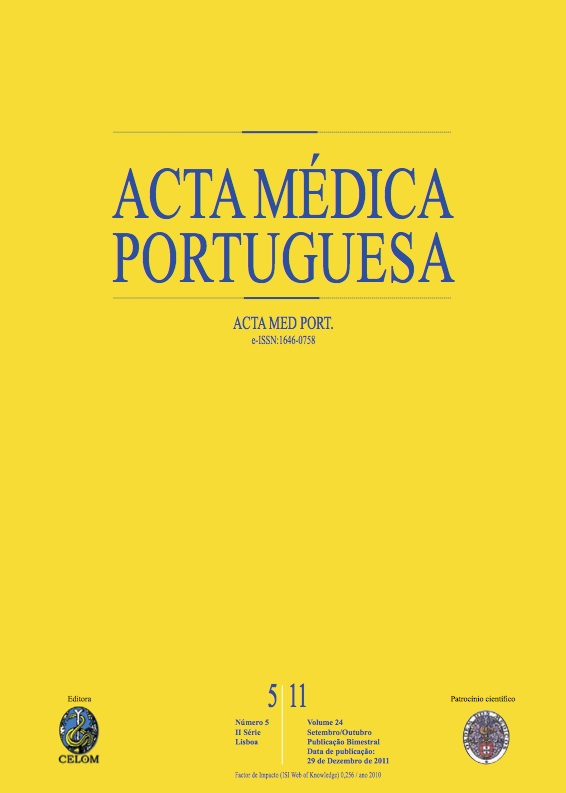Associação do padrão de ingestão lípidica com a qualidade da dieta, resistência insulínica e homocisteinemia em adultos.
DOI:
https://doi.org/10.20344/amp.515Resumo
To evaluate the association between the consumption of different dietary fats with the quality of the diet, insulin resistance, and hyperhomocysteinemia in adults.Cross-sectional study conducted with 624 overweight subjects (73.7% females). Assessments of food intake (24h food recall and health eating index-HEI), anthropometry, and biochemical assays of fasting glucose, insulin (HOMA-IR and ß calculus) and homocysteinemia were performed.The low quality of diet was associated with the vegetable oil at 3rd quintile (≥1.5-2.0 servings) showed risk 2.9 times and cholesterol at quintiles 2nd, 3rd, and 4th was 2.0 times. HOMA-IR was higher at 5th quintile of saturated fat (≥10,7% - total caloric value) with risk of 60% and hyperhomocysteinemia the vegetable oil at 3rd quintile (>1.5-2.0 servings) with risk of 12.0 times and 5th (≥3.5 servings) 7.1 times. However, significance disappeared when adjusted for anthropometric variables.Dietary fats were associated with the harm diet quality, insulin resistance, andhyperhomocysteinemia. However, associations are dependant of demographic variables, dietetic, and nutritional state.Downloads
Downloads
Como Citar
Edição
Secção
Licença
Todos os artigos publicados na AMP são de acesso aberto e cumprem os requisitos das agências de financiamento ou instituições académicas. Relativamente à utilização por terceiros a AMP rege-se pelos termos da licença Creative Commons ‘Atribuição – Uso Não-Comercial – (CC-BY-NC)’.
É da responsabilidade do autor obter permissão para reproduzir figuras, tabelas, etc., de outras publicações. Após a aceitação de um artigo, os autores serão convidados a preencher uma “Declaração de Responsabilidade Autoral e Partilha de Direitos de Autor “(http://www.actamedicaportuguesa.com/info/AMP-NormasPublicacao.pdf) e a “Declaração de Potenciais Conflitos de Interesse” (http://www.icmje.org/conflicts-of-interest) do ICMJE. Será enviado um e-mail ao autor correspondente, confirmando a receção do manuscrito.
Após a publicação, os autores ficam autorizados a disponibilizar os seus artigos em repositórios das suas instituições de origem, desde que mencionem sempre onde foram publicados e de acordo com a licença Creative Commons









